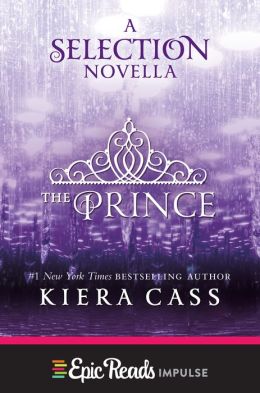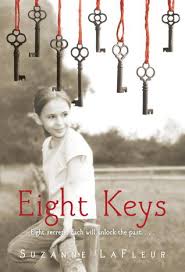Bibliography
Walls, Jeannette.
The Silver Star. New York: Scribner, 2013. Print.
image from:
http://media.npr.org/assets/bakertaylor/covers/t/the-silver-star/9781451661507_custom-c08fa0017449530fcf21256215de10bd3b3e6eb9-s6-c30.jpg
 Back cover summary
Back cover summary:
"It is 1970 in a small town in California. 'Bean' Holladay is twelve and her sister, Liz, is fifteen when their artistic mother, Charlotte, a woman who 'found something wrong with every place she ever lived,' takes off to find herself. She leaves the girls enough money to last a month or two. When Bean returns home from school one day and sees a police car outside the house, she and Liz decide to take the bus to Virginia, where their widowed Uncle Tinsley lives in the decaying mansion that's been in Charlotte's family for generations.
An impetuous optimist, Bean soon discovers who her father was, and hears many stories about why their mother left Virginia in the first place. Money is tight, so Liz & Bean start babysitting and doing office work for Jerry Maddox, foreman of the mill in town--a big man who bullies his workers, his tenants, and his wife. Bean adores her whip-smart older sister--inventor of word games, reader of Edgar Allan Poe, nonconformist. But when school stars in the fall, it's Bean who easily adjusts and makes friends, and Liz who becomes increasingly withdrawn. And then something happens to Liz in the car with Maddox."
My Thoughts
Walls is a wonderful story-teller. I enjoyed
The Glass Castle and
Half-Broke Horses. This story,
The Silver Star, was not autobiographical like the other two, but a wonderful story. Walls knows small town life. She captures the nuances.
When the girls first arrived at Uncle Tinsley's, I thought he might be a prime candidate for
Hoarders. He wouldn't allow the girls inside, blocked the door from their view and then once they were allowed inside, told them that every piece of everything had special value and meaning ("if you had the brains to see its value") (Walls 41). Uncle Tinsley's character actually surprised me, as he turned out to be a solid, good person and a constant support for the girls.
The mother was something else! Boy, I just wanted to slap her, repeatedly! How can she be so selfish to leave her young daughters in California? Then when she finds out where they are, she still leaves them. Once she does make it to Virginia, she is so self-consumed that it really doesn't matter that she's there. Oh, she doesn't last long there, though. She heads up to New York City and promises to send for the girls when things got settled. Surprise, surprise (note the sarcasm), they never do. I very much DISLIKED this character. Walls created her and kept her in character consistently. I never felt like, oh, she's getting it. She sees how she's wrong. Nope, the mother was a victim her entire life and the entire time of this story.
Bean is the narrator of the tale, and she blossomed in Virginia. Instead of being the sister always being told what to do, she became the one doing the telling. She became wiser to the world (and at times, I thought acted much older than 12). She learns about her father and the truth of how he died. The title reference shows up when Aunt Al is explaining that Liz's dad was in the Korean War and "got the Silver Star" (Walls 87). Ever the optimist, Bean does cling to hope that her mother will change, but she also comes to realize that her mother will never change. I was proud of Bean when she tells her mom, "Every time we run into a problem, we just leave. But we always run into a new problem in the new place, and then we have to leave there, too. We're always just leaving. Can't we for once just stay somewhere and solve the problem?" (Walls 236).
Sister Liz doesn't fair as well in Virginia. She becomes sullen and withdrawn (the age?). What Walls has Liz reading struck me. "She was sitting up in bed, reading a book called
Stranger in a Strange Land, which she'd come across while we were cleaning the house" (Walls 46). I've read this book. I wondered if the book was a popular title in its day (reiterating that Walls captures the details in a story), or it just so happened that Walls included an obscure book that I happen to know. Either way, I marked the reference. Walls also includes several of Poe's poems and Harper Lee's
To Kill a Mockingbird.
Mr. Maddox was the biggest jerk and a bully and an abuser! His character was so real. I could see and hear him, and I feared for his wife and Bean & Liz. I knew he was bad news from the moment he arrives in the story. The court room scene in this novel reminded me of
To Kill a Mockingbird. The facts are there, yet the jury does not give the right verdict. I liked the layering Walls created with having a character read one novel and the real life drama unfold in her own story. I was glad that Walls allowed justice to hit Mr. Maddox.
The way the story ends was satisfying.
 When I read The Selection, I didn't keep close tabs on each girl (their name, description, social status), but reading this story, I noticed that even the overwhelmed Prince makes some distinctions. "I imagined Kriss next to Celeste, and thought of them as opposites" (Location 680).
When I read The Selection, I didn't keep close tabs on each girl (their name, description, social status), but reading this story, I noticed that even the overwhelmed Prince makes some distinctions. "I imagined Kriss next to Celeste, and thought of them as opposites" (Location 680). 


